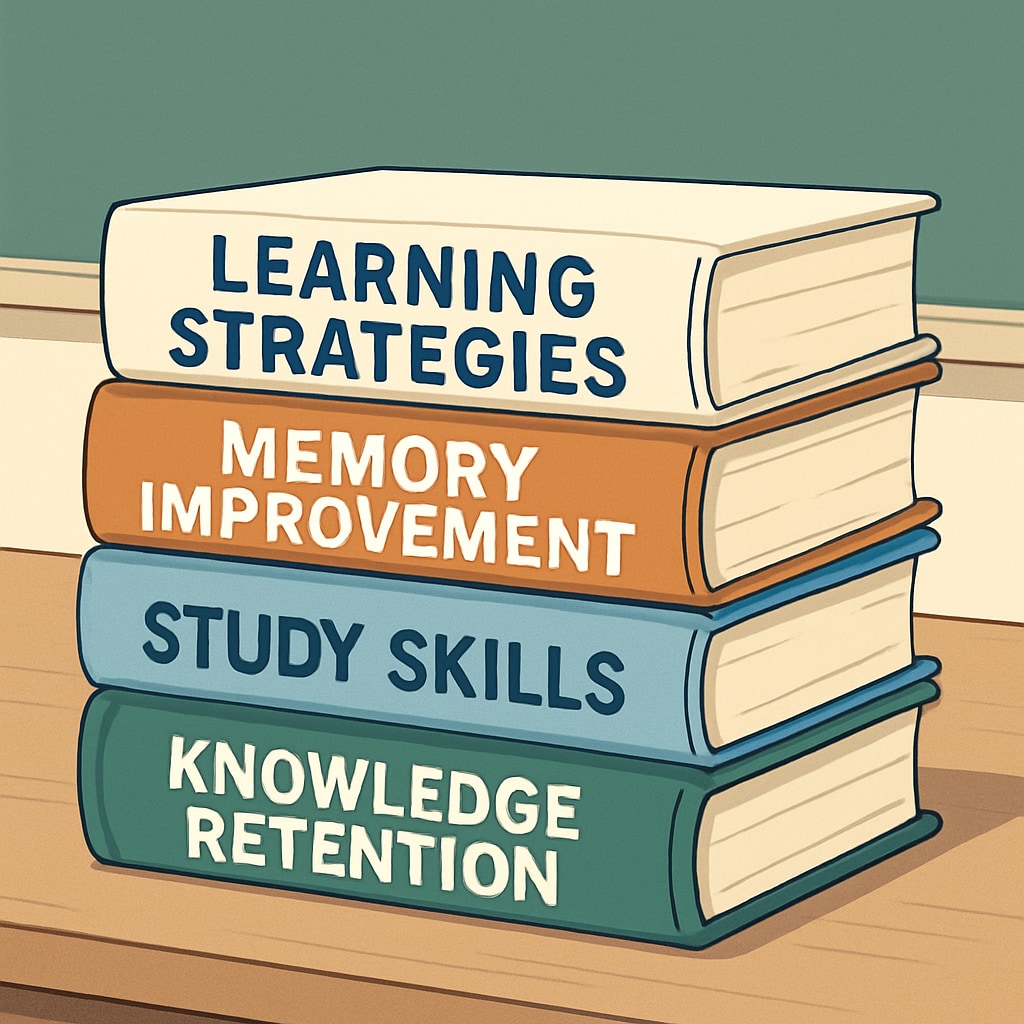In today’s information-driven world, understanding effective learning methods and mastering knowledge retention are essential for K12 students. With countless distractions, equipping teens with tools to actively absorb and retain information can transform their educational experience. This article highlights some of the best book recommendations to empower young learners and foster lifelong learning skills.

Why Knowledge Retention Matters for Teens
Retention of knowledge goes beyond memorizing facts; it involves the ability to apply learned concepts in new situations. For example, understanding math principles and applying them to real-world problems is a clear sign of retained knowledge. However, many students struggle with keeping information accessible over time due to inefficient study methods.
Building effective study habits can help teens overcome these challenges. Techniques such as active recall, spaced repetition, and metacognition (thinking about one’s own thinking) are proven ways to enhance retention. Below are some book recommendations that dive deeper into these strategies.
Top Book Recommendations for Learning Methods and Retention
Here is a curated list of books that focus on learning strategies and improving memory:
- “Make It Stick: The Science of Successful Learning” by Peter C. Brown: This book explains why traditional study methods like rereading and highlighting are often ineffective. It introduces evidence-based approaches, including retrieval practice and interleaving, to boost long-term retention.
- “How to Take Smart Notes” by Sönke Ahrens: Perfect for students learning to organize their thoughts and research, this book emphasizes the importance of note-taking for understanding and retaining knowledge.
- “Atomic Habits” by James Clear: While not solely about learning, this book offers insights into building small, sustainable habits that can enhance productivity and study effectiveness.
- “A Mind for Numbers: How to Excel at Math and Science” by Barbara Oakley: This book is tailored for students struggling with STEM subjects, providing strategies to overcome mental blocks and better retain complex concepts.

Practical Tips from the Featured Books
Here are some actionable tips derived from these books:
- Active Recall: Regularly testing oneself on learned material helps reinforce memory.
- Spaced Repetition: Reviewing information at increasing intervals prevents forgetting and strengthens long-term retention.
- Note-Taking: Writing down key concepts in your own words fosters deeper understanding.
- Habit Formation: Small, consistent actions—like studying for 20 minutes daily—can lead to significant improvements over time.
How These Strategies Build Lifelong Learning Skills
Adopting efficient learning methods not only improves academic performance but also prepares teens for challenges beyond school. For instance, professionals in fields like medicine or engineering continue to rely on retention techniques to stay updated. By mastering these skills early, students can set themselves up for success in both personal and professional endeavors.
As a result, investing time in understanding and applying these methods is a game-changer for students. By incorporating strategies from the recommended books, teens can transition from passive learners to active participants in their education.
To explore more about the science behind these techniques, check out authoritative resources like Spaced Repetition on Wikipedia and Cognitive Science on Britannica.
Readability guidance: This article uses concise paragraphs, actionable lists, and practical examples to ensure easy understanding. Transition words such as “however,” “as a result,” and “for example” are used throughout for better flow.


